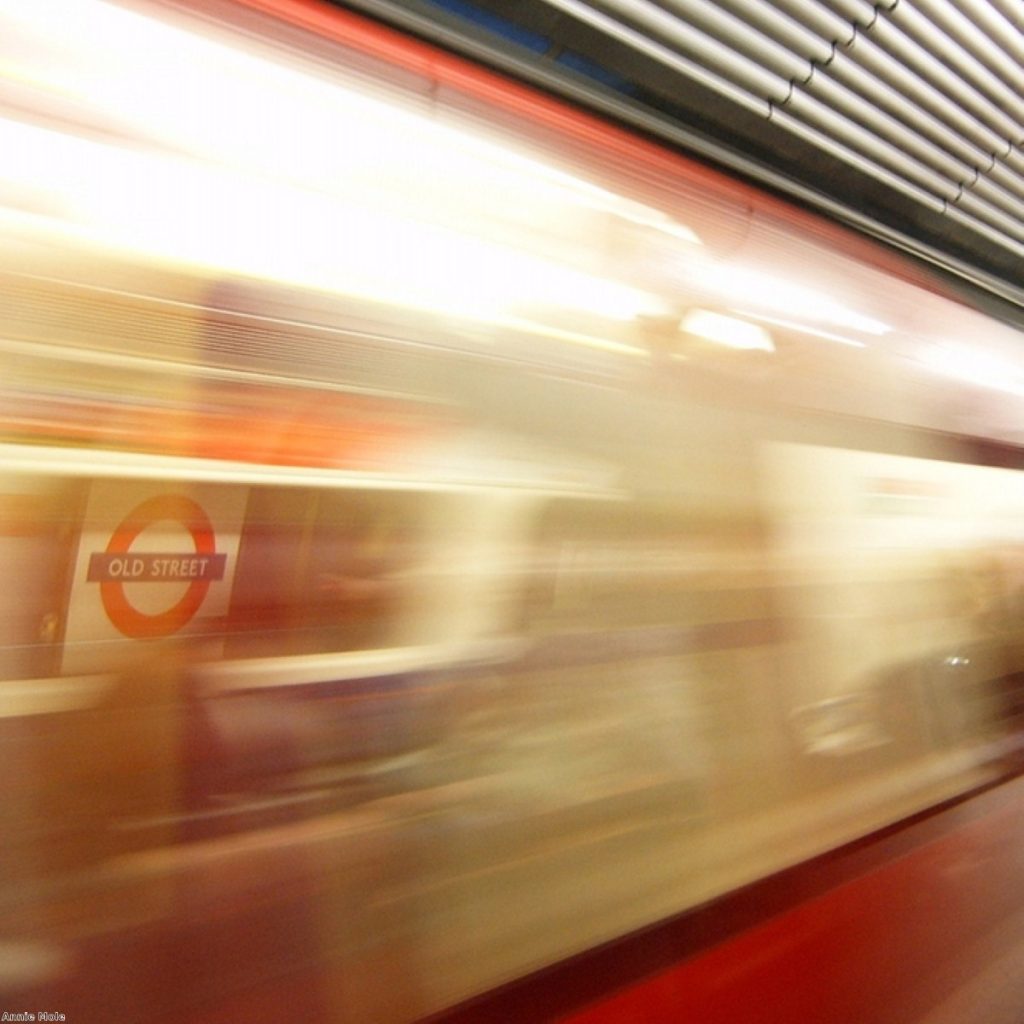A declaration of war? Tories threaten to raise bar for union strikes
The Conservative party is considering plans to introduce a threshold which could prevent many strike ballots from resulting in legal industrial action.
The move comes as London endures the first full day of a 48-hour strike by Tube workers which has brought the capital to a halt.
London mayor Boris Johnson has complained he is being "held to ransom" by the RMT and TSSA unions, who organised the walkout in opposition to his plans to shut ticket offices and scrap hundreds of jobs in the process.
Now Downing Street has indicated the Conservative party is prepared to consider proposing new rules which would make it much harder for strikes to take place.
The RMT's turnout in their strike ballot was 40%, while the TSSA union's stood at 49%. Both fall short of the 50% turnout Johnson has called for as the minimum for a strike to go ahead.
No 10 said the Tories would consider other ways to make it harder for trade unions to secure agreement for strike action, including "timings of ballots". If approved by the party as a whole they could appear in the Conservatives' next general election manifesto.
"We'll consider it, but it's very important to stress we're not making any commitments to introducing thresholds," a Downing Street spokesperson said.
"They're on the table."
The development could mark a new chapter in the Conservative party's struggle against the trade union movement.
But it could be abandoned because of restrictive International Labour Organisation (ILO) rules, an expert told Politics.co.uk.
Legislating to impose threshold requirements on industrial strike action ballots is unheard of across Europe and would be "highly unusual", industrial relations expert Professor Roger Seifert of the University of Wolverhampton said.
"The ILO convention on trade union and collective bargaining makes it quite clear that if any government makes it obsessively burdensome to call a strike, that would be in breach of the ILO treaty," he told Politics.co.uk.
Both restrictions on the timeframe of a ballot and the requirement for a majority would be viewed as "excessive", Seifert believes.
The government could attempt to shortcut the ILO's rules by arguing they do not apply where 'essential services' are being disrupted.
But, unlike the disruption of food and water, it is far from clear whether London Underground trains would come under that definition.
"At the end of the day, it doesn't go to the heart of the dispute, which is redundancies, pay and pretty poor industrial relations at Transport for London," Seifert added.
"None of this talk does anything for this dispute.
"These things can of course backfire, because if you make it harder to call a strike, but the unions still meets that, they're more likely to have longer, tougher strikes. They'll be more determined than ever to keep the strike going."
London brought to a halt
Reports on Wednesday focused on the London strike action, which RMT general secretary Bob Crow said was "rock solid" earlier.
"That is simply a reflection of the staff anger at attempts to bulldoze through cuts to jobs, services and safety which would reduce the Tube to a dangerous, hollowed-out shell," he said.
"No one can now question the determination of the Tube workforce in the face of the mayor's cuts plans."
Johnson had signed a petition in 2008 opposing his predecessor Ken Livingstone's plans to close 40 ticket offices.
He then promised in 2010 that he would not close any ticket offices at all during his time as mayor.
Now though, Johnson wants to shut them all down in order to pay for his plans to make the Tube a 24-hour service.
"Many thousands of London Underground and Transport for London (TfL) staff are working flat out today to help our customers and to keep London working in the face of this pointless action by the RMT and TSSA leaderships," a TfL spokesperson said.
"We thank Londoners for their patience during what will undoubtedly be some difficult journeys today."
The RMT released a poll suggesting that disgruntled commuters support the strike. Two-thirds said they were concerned with the mayor's plans, while 65% thought lawful industrial action as a last resort was justified.
Johnson himself insisted earlier it was essential that the tube be modernised and automated.
"We need to take advantage of new technology, automatic payment systems, which will enable us to save hundreds of millions of pounds that we can put into more track, signalling and allow them to run 24 hours," he said.
The 48-hour strike began at 21:00 GMT on Tuesday and has already seen large crowds of frustrated passengers gathering at ticket barriers across London.
David Cameron tweeted yesterday: "Bob Crow's Tube strike is shameful, bringing misery to millions of Londoners. Ed Miliband should condemn it now: no 'ifs' and no 'buts'."
He repeated the partisan point in prime minister's questions this lunchtime, saying: "I unreservedly condemn this strike."
Despite calls on Ed Miliband to do the same, the leader of the opposition avoided commenting on the issue in his six questions to the PM.
The impact of the strike on the capital's economy remains a concern for hundreds of firms.
John Allan, chairman of the Federation of Small Businesses, said: "Just as the economy is starting to pick up, small firms are naturally deeply concerned about the impact strike action will have on their ability to do business."
Estimates suggest each day of the strike could cost £50 million – the same amount of money Johnson is hoping to save as a result of the job cuts.





-01.png)